10F, Building B, Erqi Center, Erqi District,
Zhengzhou City,
Henan Province, China
Wit:+86 15138685087
(WhatsApp/Wechat)

10F, Building B, Erqi Center, Erqi District,
Zhengzhou City,
Henan Province, China
Wit:+86 15138685087
(WhatsApp/Wechat)
430 stainless steel is a representative type of ferritic stainless steel. It has a high chromium content, usually 16.00%-18.00%, and has good corrosion resistance. It is a general-purpose steel and is widely used in home appliances, construction, automobiles and other fields. Wanzhi Steel stocks various sizes and types, including 430 stainless steel coils, 430 stainless steel plates and strips, and supports all surface processing, welcome to contact us for more information.
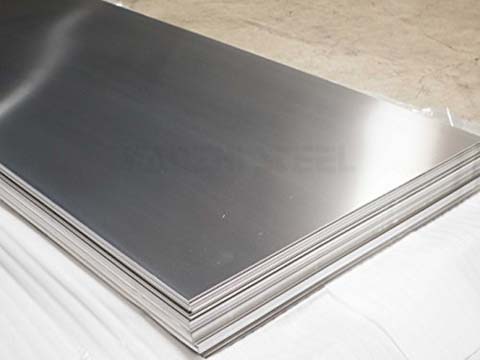
Stainless Steel Sheet
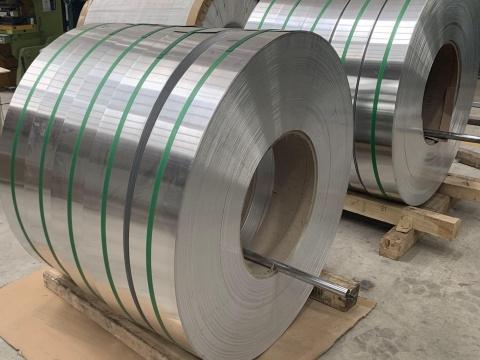
Cold rolled 430 Stainless steel coil
Embossing, perforation, coloring, welding, cutting.
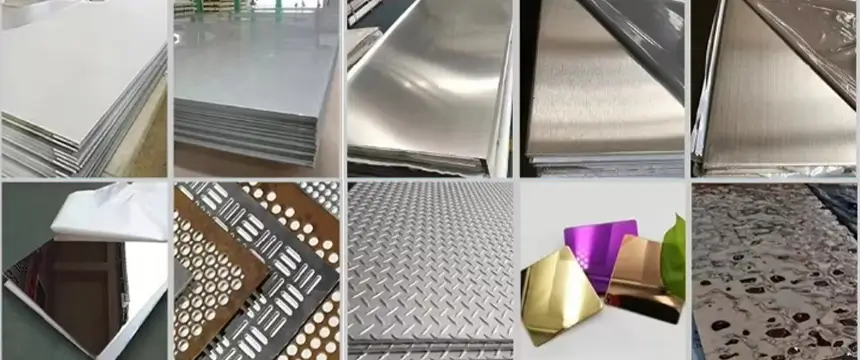
Surface treatment and different processing
| Item | 430 Stainless Steel |
| Place of Origin | Shandong, China |
| 430 SS Coil | Thickness: 0.12-2mm, Width: 600-2000mm, Length: Cut to length |
| 430 SS Sheet | Thickness: 0.12-4mm, Width: 600-1500mm, Length: 2000-3000mm |
| 430 SS Strip | Thickness: 0.1-2mm, Width: 10-600mm, Length: Roll or cut to length |
| 430 SS Bar | Round bar – diameter: 5-200mm, length: 1000-6000mm |
| Square bar – diameter: 10-150mm, length: 1000-6000mm | |
| Hexagonal bar – diameter: 10-100mm, length: 1000-6000mm | |
| 430 SS Pipe | Welded pipe: outer diameter: 10-200mm, wall thickness: 0.8-6mm, length: 1000-6000mm |
| Seamless pipe: outer diameter 10-150mm: wall thickness: 1-10mm, length: 1000-6000mm | |
| Surface finish | N0.1, N0.2, N0.3, N0.4, N0.5, N0.6, N0.7, N0.8, 2D, 2B, HL, BA, 6K, 8K, etc |
| Trade Term | FOB, CFR, CIF |
| Standard | ISO, JIS, ASTM, AS, EN, GB, DIN, JIS, etc |
| Delivery time | 18-28 days |
1. Corrosion resistance: Good corrosion resistance to a variety of media (including nitrates and some organic acids), especially when the surface is highly polished.
2. Oxidation resistance: Good oxidation resistance at 870°C intermittent operation and 815°C continuous operation.
3. Formability and ductility: 430 stainless steel plate is a non-hardenable ordinary chromium stainless steel with excellent finish and formability, and ductility.
4. Processing performance: Easy to cold work but not as tough as 304 stainless steel. 430 ss is often used for aesthetic applications, and the surface finish is very important.

Stainless steel plate
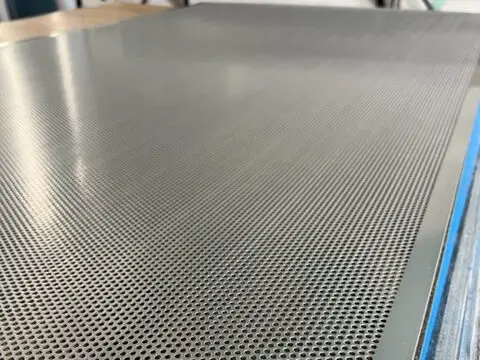
430 Stainless steel perforated mesh
| Parameter name | Value |
| Density | 7.7 g/cm³ |
| Melting point | 1427℃ |
| Coefficient of thermal expansion | 10.4 × 10⁻⁶/°C(20-100) |
| Young’s modulus | 200GPa |
| Modulus of stiffness | 77 GPa |
| Elements | Content range |
| C | ≤0.12 |
| Si | ≤0.75 |
| Mn | ≤1.00 |
| P | ≤0.040 |
| S | ≤0.030 |
| Ni | ≤0.60 |
| Cr | 16.00~18.00 |
| Mo | 2.00-3.00(optional) |

Stainless Steel Usage
Both are available as food grade stainless steel. For example, a manufacturer that specializes in high-acid foods (such as tomato products) will have different needs than a manufacturer that produces baked goods. Therefore, the differences and advantages and disadvantages of them are as follows:
Both Grade 316 and Grade 430 resist oxidation at high temperatures. Of the two, Grade 316 performs better, with a continuous service temperature of 1472°F (800°C), while Grade 430 is suitable for intermittent temperatures of 1598°F (870°C) and continuous temperatures of 1499°F (815°C). However, Grade 430 becomes brittle after long-term use at 752-1112°F (400-600°C), requiring annealing to reverse this effect. In applications where stainless steel parts are frequently stressed, Grade 430 is more resistant to stress corrosion cracking.
Due to the same chromium content, both are highly resistant to organic acids and nitric acid. However, 316 has additional resistance to pitting caused by a wider range of acids, bases, and salts, while 430 has higher resistance to sulfur and oxidation. Overall, 430 is acceptable when exposed to acids only for a short period of time, while 316 can withstand long-term repeated exposure. In addition, 430 must be wiped immediately after exposure to moisture to avoid rusting and must be kept well-polished to maintain its functionality.
Both can be cleaned quickly and efficiently.
| Chemical component(%) | |||||||||
| Grade
|
C
(max) |
Si
(max) |
P
(max) |
S
(max) |
Mn
(max) |
Cr
|
Ni
|
Mo
|
N
(max) |
| 201 | 0.15 | 1.00 | 0.06 | 0.03 | 5.50-7.50 | 16.00-18.00 | 3.50-5.50 | – | 0.25 |
| 202 | 0.15 | 1.00 | 0.06 | 0.03 | 7.50-10.00 | 17.00-19.00 | 4.00-6.00 | – | 0.25 |
| 304 | 0.08 | 1.00 | 0.045 | 0.03 | 2.00 | 18.00-20.00 | 8.00-10.50 | – | 0.10 |
| 304L | 0.03 | 1.00 | 0.045 | 0.03 | 2.00 | 18.00-20.00 | 8.00-12.00 | – | 0.10 |
| 316 | 0.08 | 0.75 | 0.045 | 0.03 | 2.00 | 16.00-18.00 | 10.00-14.00 | 2.00-3.00 | 0.10 |
| 316L | 0.03 | 1.00 | 0.045 | 0.03 | 2.00 | 16.00-18.00 | 10.00-14.00 | 2.00-3.00 | 0.10 |
| 309 | 0.20 | 0.75 | 0.045 | 0.03 | 2.00 | 22.00-24.00 | 12.00-15.00 | – | – |
| 309S | 0.08 | 0.75 | 0.045 | 0.03 | 2.00 | 22.00-24.00 | 12.00-15.00 | – | – |
| 430 | 0.12 | 1.00 | 0.04 | 0.03 | 1.00 | 16.00-18.00 | 0.75 | – | – |
If you want to know the price of 430 stainless steel products, it is related to many factors, such as plate thickness, length, and width, base material, surface treatment, etc., as well as quantity, so please send us your requirements so that we can reply you with the accurate price.
Wanzhi Steel Company is a steel manufacturer and exporter in China, we have a professional team and excellent workers who aim to supply the best service and satisfied products for all of our customers.
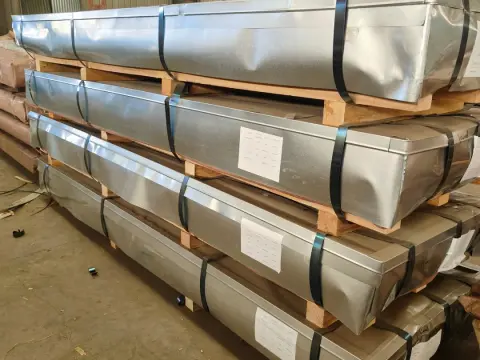
Brushed gold SS sheet shipped to solomon
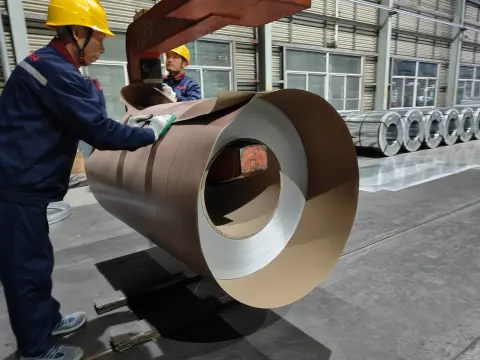
Stainless steel coil packaging
Wanzhi Steel mainly deals in 304, 304L, 316, 316L, 2205, and other hot-rolled medium and thick plates, 430, 304 ultra-pure ferrite and martensite, and other cold-rolled products. We have established long-term cooperative relations with many countries, and our products have been widely used in the petrochemical, aerospace, pharmaceutical, and papermaking industries. Therefore, we enjoy a good reputation and good evaluation.
Let’s do long-term business together with the following products:
If you need 430 stainless steel, you are welcome to contact Wanzhi Steel.





